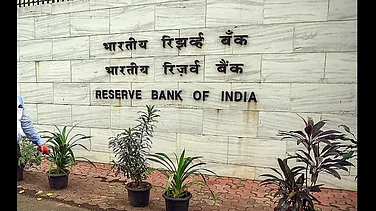New Delhi, March 11: India's Non-Bank Financial Institutions (NBFI) are likely to face renewed pressure on funding and liquidity following the Reserve Bank of India's (RBI) takeover of Yes Bank this month, said Fitch Ratings.
The consequences will compound the credit squeeze across the country's financial system, adding to current economic uncertainty.
The move comes as the impact of the coronavirus is beginning to be felt in India, raising further risks to economic growth and NBFI asset quality. Rising asset quality and funding risks will place pressure on ratings if conditions worsen materially, said the rating agency.
The NBFI sector's direct exposures to Yes Bank should be modest as a whole. Yes Bank's issues have been known for some time, and companies have had time to pare back any exposure to the bank over the past year. Yes Bank's advances to NBFIs equated to roughly 1-2 per cent of the NBFI sector's total bank funding and the sector's asset exposures to the bank would be similarly moderate.
This is the case for Fitch's rated portfolio of Indian NBFIs, although companies such as Shriram Transport Finance Company and Indiabulls Housing Finance have disclosed some holdings in Yes Bank securities. Shriram Transport's exposures are to the bank's Upper Tier II securities, which are not subject to being written down under the RBI's proposed reconstruction scheme.
These holdings amounted to less than 1 per cent of Shriram Transport's equity at end-December 2019, while Indiabulls had exposure to Yes Bank's Additional Tier 1 (AT1) bonds.
Fitch said, the recent announcement may bring about broader contagion effects for NBFI funding conditions. The RBI's planned reconstruction scheme broadly protects the deposits and liabilities of the bank, but calls for a write-down on its Basel III AT1 instruments at present. This may trigger another round of investor risk aversion that tightens market access and raises overall funding costs for borrowers, with wholesale NBFIs likely to remain more vulnerable in this situation.
An extended credit squeeze will likely exacerbate asset quality risks for the financial sector including NBFIs, which are already facing pressure from a general economic and property-sector slowdown, and an evolving COVID-19 situation. The asset quality risks that have been largely centred on wholesale property development would, in Fitch's view, start to broaden if the economy becomes more adversely affected.
“These events add to the challenging operating environment for Indian NBFIs, with a rising uncertainty over funding conditions in the near term. This is notwithstanding recent improvement following multiple supportive measures by the authorities. Fitch will be monitoring the rated NBFIs' funding access and liquidity positions closely over the near term, and will assess the broader economic impact of recent developments on potential asset quality trends for any signs of deterioration that may have an impact on the ratings,” Fitch added.































